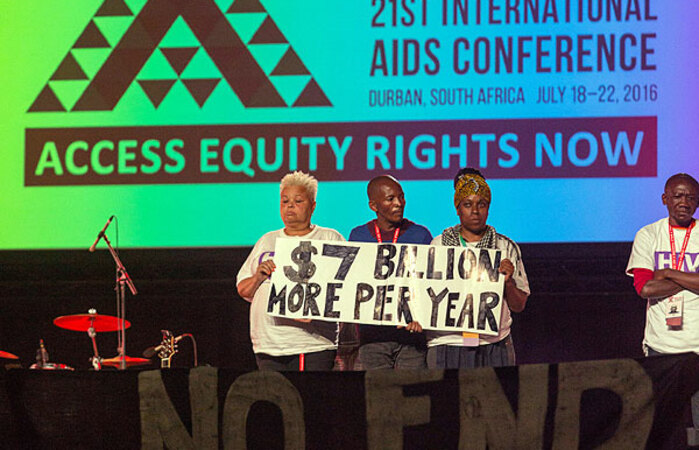AIDS 2016: What can Uganda learn from it?
Managing our HIV information and knowledge adequately is one way to avoid duplication of services
By Jennifer Tumusiime
A few weeks ago, the 21st International AIDS Conference was held in Durban, South Africa.
The weeklong conference under the theme Access Equity Rights Now was attended by over 15,000 delegates including some Ugandans. I was one of them. And my time there exposed me to global efforts to combat HIV/ AIDS. As a country we can learn and adopt some of these ways.
One of my highlights was the HIV self-testing Africa (STAR) that is being conducted in Zimbabwe. The early data from the study shows that there is a strong demand for self-testing in rural Zimbabwe. This study, if well analysed and applied within the Ugandan context, can help in scaling up HIV testing which is still a challenge for us as a country, especially now that the focus is towards the drivers of the epidemic such as female sex workers and their partners.
If embraced, this could help us meet the UNAIDS target of ensuring that 90% of people know their HIV status; 90% of those tested positive can access treatment and 90% of those on treatment have their viral load suppressed (90-90-90) by 2020 and eventually ending AIDS by 2030.

It is clear that for us to realise this there is need not just to mobilise adequate funds but make better use of the resources we already have.
Managing our HIV information and knowledge adequately, as a resource, is one way to avoid duplication of services, thereby avoiding unnecessary wastage; ensuring evidence based HIV response and overall lead to an efficient and coordinated response.
We can learn from others. Zambia for example tracks performance of Community Health Workers and men who turn up for Voluntary Male Medical Circumcision with the use of data dash boards. Based on these reports, strategies are drawn for improvement of interventions in a timely manner.
Most of the speakers at the conference emphasised the importance of community led approaches for the HIV response. Within the HIV response, communities are seen as the leaders and drivers for solution; yet innovation and the use of social media in campaigning and programming, especially to targeting young people seems to be lagging behind. Profiles of successful community social media campaign strategies were presented including success stories and challenges. We too can learn from these successes as we program for the youth and adolescents, a group that is a key area of focus in our HIV response.
We also heard and learnt from countries that have used geospatial analysis to effectively program for the HIV response. Geospatial analysis is a tool that helps in Identification of high priority regions/ districts for intensified roll out of prevention and treatment interventions; generation of sub-provincial epidemiological maps of transmission hotspots and existing HIV and TB services, infrastructure and assists in the planning of and budgeting for public sector HIV programmes that enables a comparison of service coverage and performance at the district.
These and many others are some of the examples we can learn from as we continue to lay strategies for fighting the epidemic.
We need to document and share widely interventions that have worked well for further learning and adaptation, and drop those that do not work. We need to prioritize Knowledge Management initiatives and embrace innovative ways of capturing and sharing not only information, but also tacit knowledge embedded within experts to widen our base. If we deliberately make efforts to avail information to the different actors in the HIV response in the right format, at the right time, and based on need, while encouraging learning, we can leverage the meager resources available for the HIV Response while making maximum impact.
We have to maximise use of the evidence generated through research as a country as well. This calls for packaging and communication of the complex research results with the different actors at the national level and communities to rally support inform our programming and policies. We should not stop at publishing our research at International Conferences and in peer reviewed journals.
If we put Knowledge management at the forefront of our fight against the epidemic, the results will be more rewarding and the national and global targets will become a reality. We have the power to make it work.
I am confident that if we do this, Uganda will showcase even greater achievements at the AIDS 2018 in Amsterdam.
The writer is a knowledge management specialist